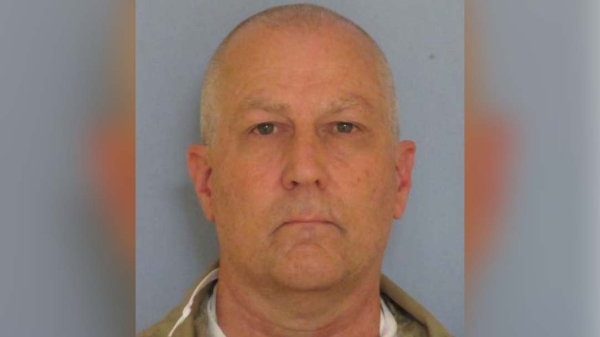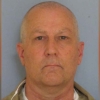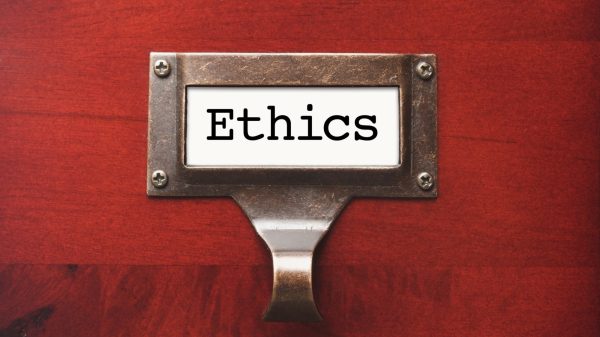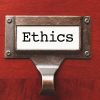By Bill Britt
Alabama Political Reporter
MONTGOMERY—At what appears to be a 2012 lecture promoting his vanity publication Storming the Statehouse, Speaker of the House Mike Hubbard, R-Auburn said, in reference to the Supreme Court, “We have 9 of 9 Justices.”
Hear comment at 20:40 mark
In his speech, Hubbard seems to make clear that he believes the Alabama Supreme Court would be inclined to rule in a partisan manner in a particular case.
The narrative that Alabama’s courts are a political tool is an old one, with some doubt and yet plenty of merit. The courts are not trusted in part, because the justices are elected along party lines. In the case of the Supreme Court, this would mean the court is aligned with the Republican Party and that is exactly what Hubbard is referring to in his statement.
Wayne Flynt, Professor Emeritus of History at Auburn University, recently told AL.COM that his hunch was that Speaker Hubbard would be indicted as a result of the public corruption investigation being conducted in Lee County. But he added, “My hunch is he will not be convicted.”
He goes on to say, “The reason is the Supreme Court has made it increasingly difficult to do what happened to (former Gov. Don) Siegelman… I don’t think this (Alabama) Supreme Court is ever going to say that because those two events happened, they are somehow related unless…unless you’ve got a document (such as) from Richard Scrushy that says if I give you $1 million for the lottery, will you appoint me to the hospital board so I can protect HealthSouth.”
Flynt, a historian, is either clairvoyant or knows something that has not been reported by this news organization. In over 60 reports on Hubbard and his believed wrong doings, the Alabama Political Reporter has never found that Hubbard committed the same acts as Siegelman.
Here Professor Flynt seems to be making a flawed analogy.
What our reporting has clearly shown is that Hubbard accepted money from American Pharmacy Cooperative Inc., and in exchange had language added to the 2013 Medicaid portion of the General Fund Budget to give the company a monopoly over the pharmacy benefit plan the State was considering. In this instance, Hubbard could be charged with accepting a bribe to pass legislation and using his office for personal gain.
In other reports we have shown how Hubbard used the funds received by the ALGOP and other political action committees to funnel money into his personal business interests. This is more akin to embezzlement and not a Quid Pro Quo like in the Siegelman-Scrushy affair.
Again the comparison by the Professor is inaccurate, comparing dissimilar acts perpetrated by very different men.
However, in Flynt’s statements, there are echoes of the very hopes of Hubbard and company, while enflaming the fears of those who believe that justice is not always dispensed equally, within the political class. Still the notion of indictment verses conviction has become so rampant among political insiders that it is almost worthy of its own tracking stock.
The idea that party affiliation and alliance to political bosses trumps judicial integrity, speaks to the darker side of politics and the State’s justice system.
There is no evidence that the Alabama Supreme Court would ever compromise their judicial integrity for a party boss or anyone else.
But, there are some occasions where other courts have ruled in what appeared to be a partisan manner.
There is no doubt an intersection where Judges and politicians connect. Take the recent appellate court hearing in the case of former Sen. Lowell Barron. In that case, the lives of the individuals sitting on the State’s court of appeals were so intwined with the defendant, that three of the sitting justices had to recuse themselves from hearing a motion made by the prosecution.
In the Barron case, it would appear that the justices recused themselves in a manner that would give the public confidence that justice was being served.
Since 1995, Alabama has had a law that, “require[d] the recusal of a justice or judge from hearing a case in which there may be an appearance of impropriety because as a candidate the justice or judge received a substantial contribution from a party to the case, including attorneys for the party.”
However, the 1995 law was never applied because it never received pre-clearance under the Voting Rights Act.
In 2014, State Sen. Cam Ward, R- Alabaster, passed a law in which “a motion can be filed if a reasonable person would perceive the contribution made by a party to the case, or his or her attorney, would impair the judge’s impartiality or if there is a serious question whether the judge can be objective.”
The approach that Ward offered still leaves ample room for mischief; where there is a confluence of money, friendships, party affiliations and the law.
This is what the prosecution says happened in the first trial of former Gov. Don Siegelman:
In 2004, Siegelman, along with his former Chief of Staff Paul Hamrick and Dr. Phillip Bobo, were charged with conspiring to rig bids on a State Medicaid contract.
The judge in this case was U.S. District Judge U.W. Clemon. At the time, Federal prosecutors claimed that Clemon should recuse himself from the case because he was biased against the government’s case. Among the many conflicts cited was, that Clemon had received thousands in pro bono legal work from former Attorney General Bill Baxley, who represented “an important, unindicted co-conspirator” in the trial. According to an AP report in 2004, the prosecution said that Clemon had, “expressed bias against the government stemming from being investigated in a criminal matter involving his sister, Arnese Clemon. She pleaded guilty to fraud and money laundering involving the Los Angeles school district and was sentenced to prison.”
Clemon was never been charged in the California case, but was represented by Baxley, who did not charge Clemon for his services.
Clemon ruling in the case gutted the prosecutions case an enabled Siegelman to walk away from the bid-rigging allegations. Later, the 11th Circuit did remove Clemon from the Bobo case, “in the interest of eliminating any doubt of judicial fairness and impartiality.”
At the time, AP reported that, “The 11th Circuit said Clemon’s involvement in the Siegelman-Hamrick case did not rise to the level of actual bias, but certain aspects of his participation might ‘give rise to the appearance of … a lack of impartiality in the mind of a reasonable member of the public.’”
The lead prosecutor in the case before Clemon was Matt Hart.
Many in justice and law enforcement have used Clemon’s actions in the Siegelman-Bobo trial as an example of how judicial bias, political connections and judicial misconduct poisons a legitimate case.
Later, when Siegelman was convicted in the infamous, Siegelman-Scrushy trial, Clemon made an appeal to the U.S. Attorneys Office on Siegelman’s behalf, accusing the prosecution of, “ ‘judge-shopping,’ ‘jury-pool’ ‘poisoning’ and ‘unfounded’ criminal charges in an effort to imprison Siegelman.”
To many, the Siegelman-Scrushy trial is an example of justice gone awry in our State because of political prosecution.
There is almost always a certain amount of suspicion that arises whenever the well-born or political class is placed on trial. But, in both of these politically charged cases, each side had an opportunity to cry foul.
Many people share Flynt’s belief that Hubbard will be indicted but will never be convicted. Perhaps even Hubbard draws comfort from, “We have 9 of 9 Justices.”
During his vanity book chat, Hubbard was not referring to the public corruption investigation in Lee County. But, his words are an ominous reminder that some think justice is not always blind.





















































